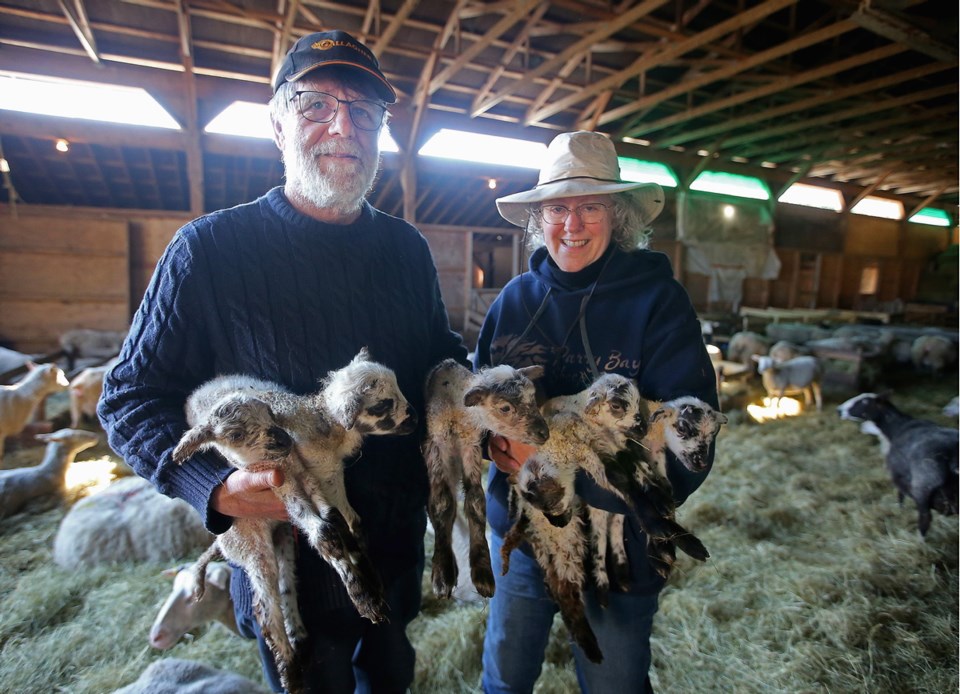At least 15 sheep have been killed and eaten by bears in the capital region so far this year, a disturbing trend for farmers who say there’s little they can do to protect their animals, which graze in dozens of pastures.
“It’s disheartening,” said John Buchanan, who has been operating Parry Bay Sheep Farm in the Metchosin area for more than four decades.
“It’s happening to farmers in the community almost every day now. There was another [Tuesday] night.”
Buchanan believes a single black bear is doing most of the damage, but there could be others. Lambs or ewes are usually chased down or run up against a fence or a log, or sometimes into the ocean, depending on the pasture.
He said it always occurs at night.
The incidents are becoming more frequent, Buchanan said.
A sheep was taken Monday, and last week disemboweled carcasses were discovered Wednesday, Thursday and Saturday in various pastures in the Metchosin area.
Buchanan’s wife, Lorraine Buchanan, said it looks as though the sheep are being eaten alive. Unlike cougars, which kill the sheep quickly before eating it, the bear is eating the animals right after capture, and “it must be horrible suffering for them.”
The Buchanans say conservation officers are aware of the problem bear or bears and are investigating.
“They are trying to catch this bear,” John Buchanan said. “They know it’s a problem bear, but you can’t go around shooting all the bears [in Metchosin].”
Buchanan said each sheep is worth about $300, so losses are mounting.
Although the provincial government started compensating farmers for losses due to animal attacks over the last two years — paying about 80 per cent of finished value — proving a sheep was killed by a bear or cougar can be difficult.
Nine sheep were lost from a pasture in East Sooke last year, but only two were proven to be bear attacks. The others were run into water, Buchanan said.
He said attacks have risen sharply since 2012.
Bear sightings are common this year, particularly in the Kangaroo Road area, which is home to some of the 30 pastures where Buchanan runs close to 1,000 sheep.
He said the bears are making it hard to run sheep on pastures. Grass-fed animals produce better meat and pasturing is more cost-effective than feedlot operations where the animals are penned and fed, he said, but it takes more time and money to check on the safety of the herds.
Electric fencing might help, but the installation costs would be punitive to farmers, Buchanan said.
Parry Bay processes about 1,200 to 1,400 lambs and ewes a year from its own farm and other smaller sheep operations, selling to grocery stores, butcher shops and restaurants. That’s about 35 lambs and 25 sheep processed per week.
“You need the volume to make it work as a business,” Buchanan said. “Farmers have many [customers] relying on it.”



